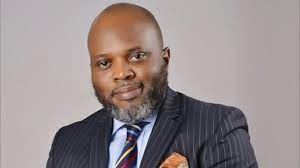Despite the growth of 5.01% in Q2, 2021, Nigeria needs an “Elite Consensus” that can articulate policies that would translate to double-digit and inclusive economic growth.
Mr Tope Fasua, an economist, said this while giving his views on the recent Q2, 2021 strong GDP growth figure for Nigeria.
According to him, it was time for the private sector, leaders of thought, technocrats, scholars, analysts, and policymakers to harmonize efforts in designing and implementing economic policies that would positively affect the population.
He believed Nigerian business leaders have a significant role in repositioning Africa’s largest economy for foreign direct investments (FDI) and private capital.
The economist decried the fact that the nation lacked the leadership philosophy that would stimulate a productive economy that is self-reliant and industrialized.
Fasua reiterated his position that Nigeria needs to lay a solid foundation for its economy to grow at an inclusive rate to create economic opportunities for the citizens.
He agreed with several analysts and economists that the growth seen in Q1 and Q2,2021 had nothing to do with government policy but the low base effect of the recessionary decline in 2020.
Speaking further, he acknowledged that the services sector emerged as a vital driver of the GDP growth in the quarter under review, which has also been the trend in developed economies alongside financial services and technology.
The financial expert challenged Nigeria to pursue double-digit economic growth, following the path of China that has witnessed phenomenal GDP growth
“For Nigeria to become a globally competitive economy, there must be concerted efforts in supporting domestic production and setting a moratorium on spending which targets local patronage of goods and services,” Fasua added.
He called on the Nigerian fiscal policy authorities to learn from China and its economic transformation by investing heavily in infrastructure and housing that would spur activities in the construction industry.
Giving a comparative analysis, he said Egypt has demonstrated the values that Nigeria should imbibe from economic patriotism, effective reforms of the foreign exchange market that have attracted over $30bn value in diaspora remittances annually, and improved per capita income for citizens.
Providing other views, he said the Nigerian government should devise a broader strategy that covers the “Integrated Modern Housing Settlement Project” for villages across the country that will enable rural development.
He also called for leadership in Nigeria, which values strong institutions that would guarantee the rule of law, vital for attracting investments that can unlock further economic opportunities.
Proshare
